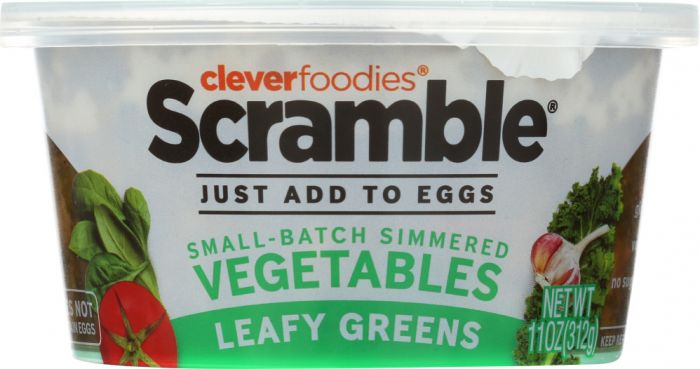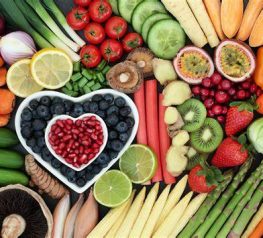Selling Organic Produce Top Food Trends to watch in 2019
When it comes to food trends in the U.S., it’s pretty safe to say that organic foods are a major game player. The organic food movement has had a major impact in terms of what Americans eat. While organic produce production in the nation is hardly a recent phenomenon, the growth of the organic food industry in the last few decades is undeniable.
What Kicked Off The Organic Food Craze?
It’s hard to believe at one time organic produce was once a specialty item for the super health conscious. But something changed. Today, consumers insist on knowing every aspect of their food production. There is an unprecedented demand for food safety. For organic produce, this means providing information. This is mostly about the inclusion or exclusion of chemicals, preservatives, pesticides, and genetically modified ingredients.
With the fitness a huge part of American lifestyle and the fast dissemination of nutrition information due to the internet, people just want to eat better. Consumers today, now want to know the history of their food. They want to know where it comes from. Is it a product of mass production? Or, from a local organic farm that uses no pesticides in growing produce? The public has become interested in the process involved of growing their produce. Also they expect information about the ethical practices and beliefs of the growers themselves.
But What Does Organic Mean?
In the most basic sense, “organic” refers to how agricultural products are grown and processed. In the United States, that means organic crops cannot be grown with the use of synthetic pesticides. Other additives include GMOs, petroleum-based fertilizers and sewage-sludge based fertilizers. Here’s an outline of the organic regulations in the U.S.
- Must be grown with manure compost aka natural fertilizer.
- Weed control in crops must be naturally controlled. For example, crop rotation, hand-weeding, mulching and tilling are natural control of weeds in crops.
- Cannot use synthetic pesticides for pest control. Birds, insects and traps are natural pesticides.
The Benefits Of Organic Produce Are Worth It
The way your food is grown absolutely affects your health. Then there’s consideration of the impact on the environment and the effects of mass food production. Among reports that organic food is better for you overall. There is alo solid research that organic produce is definitely better for your mind, body and soul.
Organic produce contains less pesticides. Herbicides and insecticides are widely used in commercially produced fruits and vegetables. Not so, with organic produce. Natural pesticides like traps and birds combat crop pests.
- Organic is consistently fresher than commercial crops. This has a lot to do with the fact that organic produce doesn’t contain any preservatives to make it last longer.
- Natural grown produce is typically produced on smaller farms. Organic farm methods lower pollution, keep soil erosion down, use less energy and reduce water waste.
- Organic produce is Genetically Modified Organisms free (GMOs). Genetically modified crops are plants whose DNA has been changed in ways that can’t happen in natural or traditional crossbreeding. GMO grown plants are most commonly produced for resistance to pesticides.
Organic Produce Rules The Market
All this contributed to how organic produce emerged from a small niche in the food market into an industry powerhouse. By 2015, the global organic foods and beverages market share reached a staggering $15 billion in U.S. dollars. This is according to a study conducted by marketing firm Grandview Research.
Organic produce leads the way making up a sizable amount of the market, says the study. Here’s the product outlook listed chronologically in terms of revenue from 2014 to 2025:
- Fruits & Vegetables
- Meat, Fish & Poultry
- Dairy Products
- Frozen & Processed Food
- Non-dairy Organic Beverages
Organic Produce: The Latest Trends Will Surprise You
With the demand for organic grown foods not letting up anytime soon, smart resellers need to know the latest trends in organic produce and how this information can impact their revenue.
For instance, according to the Organic Trade Association, by 2016, 52% of organic buyers are millennial. That means your marketing efforts might be better focused on this age group since they are more prone to purchase organic produce.
Most millennials grew up eating organic foods and produce. So it just makes sense that as adults, they continue to eat and buy food that is familiar. They’re also very educated in what organic means and why it’s important.
Bottomline: if you plan on selling organic it might be a good idea to make sure your products resonate with millennials.
Here’s more:
Value added produce. The Organic Trade Association predicts this is where the money is. This has to do with convenience. Food with flavor, fun and convenience appeal to the millennial shopper who’s always short on time. Produce items with added herbs and spices only serve to entice these kinds of shoppers. Millennials tend to like these extras included in their cooking experience.
Wholesale clubs are the next big thing. Costcos sells more organic veggies and food than Wholefoods, according to the Organic Food Association. This is an excellent time for the enterprising online retailer to get in on the wholesale clubs growth. While people want quality organic goods, they also prefer them at affordable prices. An online reseller can easily beat Wholefoods and maybe even Costco prices, too!
Dropship Your Wholesale Produce. It’s Easy!
Download our catalog to find out more about natural wholesale products and how you can create a great stream of profit selling organic produce. Learn more about us today!









